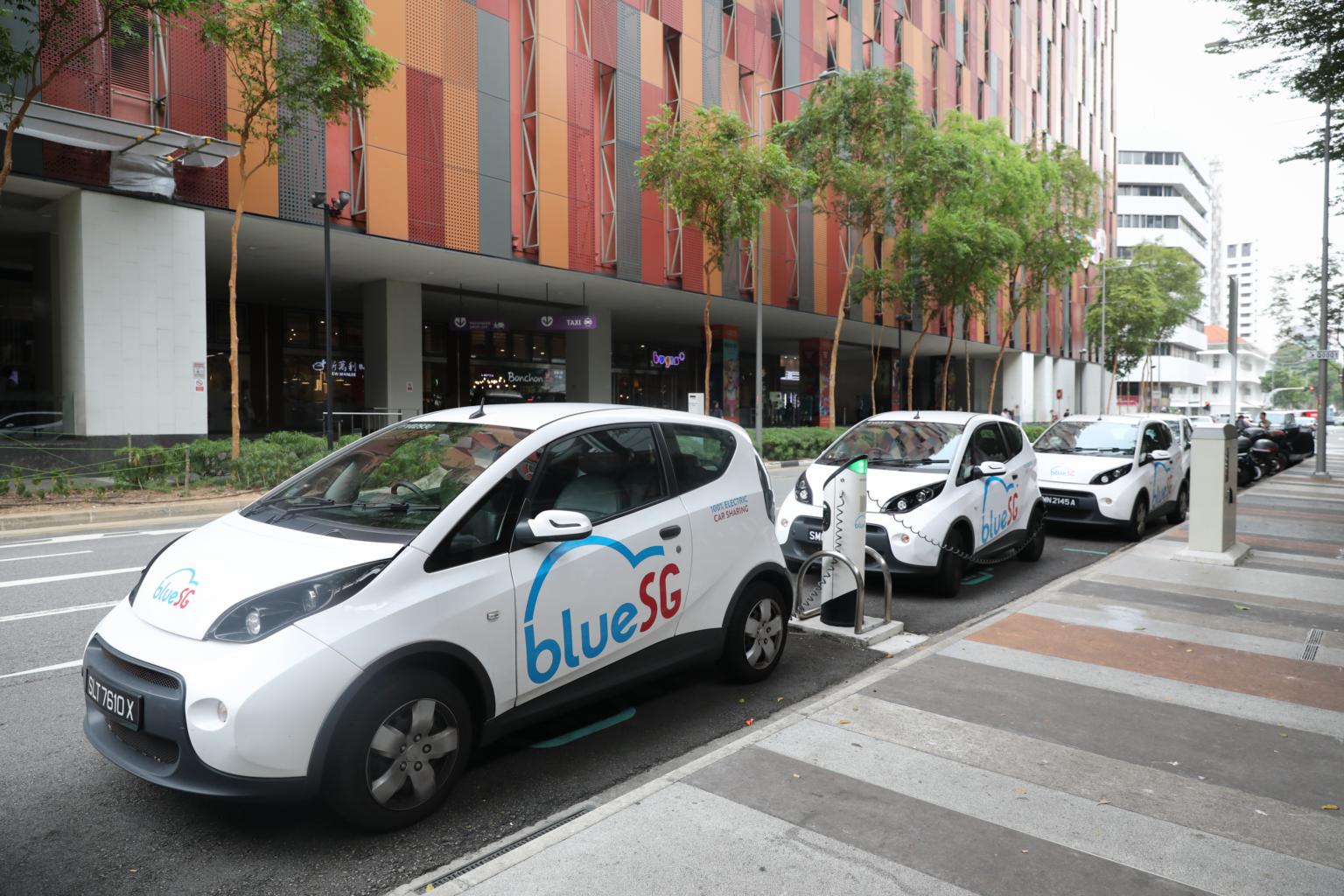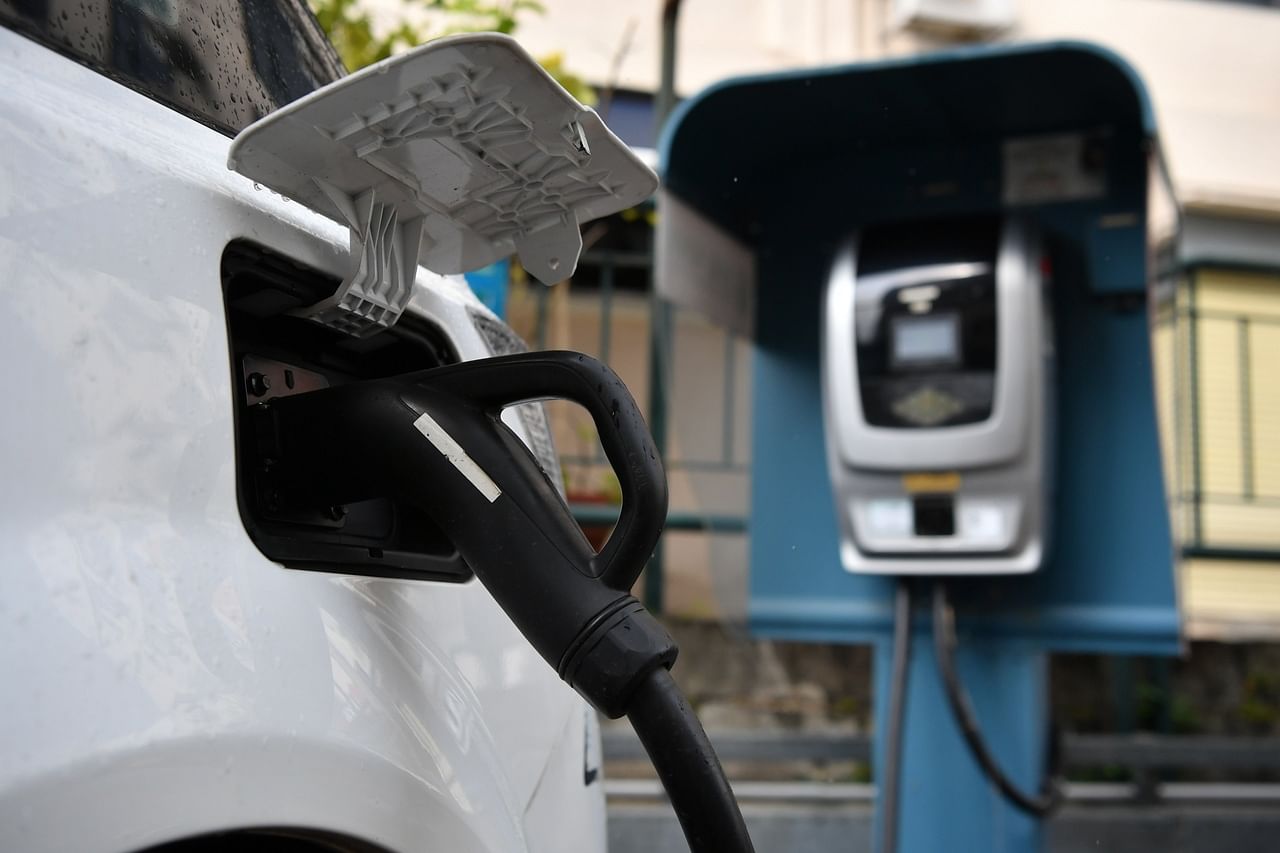Electric car registrations continue to grow in Q1; issue of hogging of chargers being tackled
Sign up now: Get ST's newsletters delivered to your inbox

With the new wave of EV registrations, there are now some 3,600 electric cars and around 2,500 charging points.
PHOTO: ST FILE
Follow topic:
SINGAPORE - New electric vehicle (EV) registrations continue to grow in the first quarter of the year and are now at 8.1 per cent of all new car registrations.
This is more than double of last year's annual figure, which was an increase of almost 20-fold compared with 2020.
With the new wave of EV registrations, there are now some 3,600 electric cars in Singapore and around 2,500 charging points, said Senior Minister of State for Transport Amy Khor on Saturday (April 9).
She gave this update at the Singapore Green Plan Conversation on Energy Reset, which was held online on Saturday morning (April 9).
Introduced in 2021, the forum aims to explore solutions to build a sustainable nation as Singapore pushes to lower carbon emissions.
Dr Khor said in her address: "There is great potential for Singapore to decarbonise its energy sector over the next decade. For the transport sector, one needle mover will be transiting from a fuel-based vehicle population to an electricity-based one."
While the uptick in registration figures was an early sign of a shift to EVs, she added that the Ministry of Transport and Land Transport Authority (LTA) were looking into existing regulations to help EV users.
They include a review of parking regulations in public carparks to ensure that EV spaces are used only for charging.
In LTA's latest EV charging point tender launched on Friday, Dr Khor said every HDB carpark will have several charging points available to the public by 2025.
She added that operators are encouraged to propose solutions to incentivise users to remove their vehicle once they are done charging.
She said some EV charging operators are planning to impose idle fees for EVs that hog a parking spot after charging is complete.
Said Dr Khor: "Such behaviour is not beneficial to everyone. It means the charging network will be less efficient, and charging costs will be higher for all."
She urged motorists to use chargers responsibly and to plan when to charge their cars based on their schedule so the car does not need to stay parked for too long.
Charging should also be done in moderation and it is not necessary to keep an EV's battery full all the time, she added.

<p>An electric car getting charged at a charging point for electric vehicles at 47 Jalan Pemimpin on February 24, 2021.</p>
PHOTO: ST
The forum was held amid a nationwide effort to adopt sustainable energy options and phase out petrol and diesel cars here by 2040.
The movement was given a boost last year with a slew of government incentives, a wider selection of models and the arrival of US carmaker Tesla.
The incentives rolled out as part of the 2030 Green Plan include the EV Early Adoption Incentive scheme and enhancements to the Vehicular Emissions Scheme, which together shave up to $45,000 off the upfront cost of buying an EV.
The authorities also doubled the number of charging stations it aims to build here by 2030 - from an earlier target of 28,000 to 60,000.
But some car buyers are still wary of EVs as they are generally more expensive than traditional cars, noted Dr Khor, adding that there is a lack of electric models across the whole passenger vehicle spectrum.
The most affordable EV models here generally cost above $110,000, compared with standard cars with an internal combustion engine (ICE) that can be bought for about $80,000.
Many people do not know where to find charging points and how to get chargers installed in their own homes, she added.
She said: "These are valid considerations. Driving an EV will, after all, require some adjustments - motorists will need to pick up new mindsets, habits and behaviours."
Some attendees at the forum told The Straits Times that they remained hesitant about buying EVs.
Technical programme manager Joseph Lim, 47, said there are no charging points near his housing block at Sengkang, which makes it inconvenient to make the switch.
For now, he will stick to his Toyota Noah, which comes with a hybrid engine that he estimates has cut around 30 per cent of his petrol costs.
University student Brandon Lian, 25, said he is eyeing the Singapore-assembled Hyundai Ioniq 5, an EV expected to launch later this year, but he hopes for lower taxes. “More can be done to even out the price disparity between ICE and EV to motivate consumers.”

